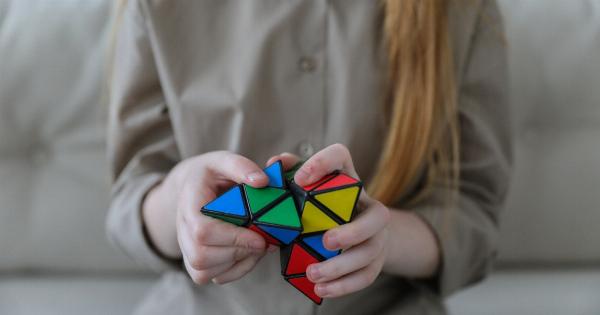Guilt is an emotion that we all experience at some point in our lives. It can be a useful tool for personal growth and learning from our mistakes.
However, when guilt becomes excessive or unwarranted, it can have detrimental effects on our mental health and overall well-being. As parents, it is important to examine whether we are inadvertently instilling guilt in our children and consider the long-term consequences of our actions.
The Role of Parenting Styles
Parenting styles play a crucial role in shaping a child’s behavior and emotions. Some parenting styles, such as authoritative or permissive parenting, are known to promote healthier emotional development.
On the other hand, authoritarian or neglectful parenting styles may contribute to the development of excessive guilt in children.
Authoritarian parents tend to be strict and demanding, often using punishment as a means of discipline. Their high expectations and harsh consequences can lead to children feeling guilty for not meeting those expectations.
Similarly, neglectful parents who provide minimal guidance and emotional support can also leave children feeling guilty for not receiving the attention and care they need.
The Impact of Unrealistic Expectations
As parents, we often have certain expectations for our children’s behavior and achievements. While it is natural to want the best for our kids, setting unrealistic expectations can inadvertently instill guilt in them.
Pressuring children to constantly meet high standards can create a fear of failure and a constant sense of guilt for not being “good enough.”.
For example, if a parent expects their child to always achieve top grades in school, even when the child is putting in their best effort, they may internalize a sense of guilt for falling short of these expectations.
This can lead to feelings of inadequacy and self-doubt, affecting their self-esteem and overall well-being.
Comparison and Guilt
In today’s hyper-connected world, comparison has become an inevitable part of our lives.
With social media platforms showcasing the highlight reels of others, children are constantly exposed to unrealistic standards of beauty, success, and happiness. This constant comparison can fuel a sense of guilt in children, as they strive to measure up to these unattainable ideals.
Moreover, as parents, we may unintentionally contribute to this guilt by comparing our children to their peers or siblings.
Statements such as “Why can’t you be more like your sister?” or “Look how well Johnny is doing in school” can instill guilt and create a sense of competition among siblings. These comparisons may lead children to constantly feel the need to prove themselves, eventually taking a toll on their mental health.
The Importance of Open Communication
One of the most effective ways to prevent inadvertently instilling guilt in our children is through open and constructive communication.
Encouraging dialogue that allows children to express their emotions and concerns can help us understand any underlying feelings of guilt they may be experiencing.
When children make mistakes or fall short of expectations, it is important for parents to respond in a supportive and empathetic manner.
Instead of focusing on blame or punishment, we can help them learn from their mistakes and develop problem-solving skills. By teaching them that mistakes are a natural part of growth, we can help alleviate unnecessary guilt.
Encouraging Self-Compassion and Empathy
Instilling self-compassion and empathy in children is crucial to prevent the development of excessive guilt. By teaching them to treat themselves with kindness and understanding, children can learn to forgive their mistakes and move forward positively.
Similarly, fostering empathy towards others can help children overcome guilt associated with their actions.
Encouraging them to understand the perspectives and feelings of others can alleviate guilt by promoting a sense of responsibility and accountability.
The Importance of Modeling Behavior
Children learn by observing the behavior of their parents and significant adults in their lives. Modeling healthy emotional responses and demonstrating self-compassion can serve as valuable lessons for children.
Parents should avoid expressing excessive guilt themselves or using guilt as a method of control. Instead, they can demonstrate self-forgiveness and self-care, showing children that it is okay to make mistakes and prioritize their well-being.
Encouraging a Growth Mindset
A growth mindset is the belief that abilities and intelligence can be developed through effort and practice. Encouraging a growth mindset in children can help them view mistakes as opportunities for growth rather than sources of guilt.
By praising their efforts and persistence rather than solely focusing on achievements, children can develop a sense of resilience and a healthier relationship with failure.
Emphasizing the journey rather than the outcome reinforces the idea that making mistakes is a normal and essential part of learning and personal development.
Nurturing Healthy Self-Identity
Guilt can often stem from a negative perception of oneself. Nurturing a healthy self-identity is therefore essential in mitigating the effects of excessive guilt.
Parents can help children develop a positive self-image by focusing on their strengths and unique qualities. Encouraging hobbies, interests, and activities that bring them joy and fulfillment can contribute to their overall sense of self-worth.
Furthermore, celebrating their achievements, no matter how small, can help validate their efforts and minimize the guilt associated with perceived shortcomings.
Seeking Professional Help
If a child’s guilt appears to be overwhelming or persistent, it may be necessary to seek professional help.
A mental health professional can provide guidance and support in helping children overcome excessive guilt and develop healthier coping mechanisms.
It is important for parents to recognize when their child’s guilt is interfering with their daily life and well-being, and to seek appropriate support in such cases.
Conclusion
Guilt is a complex emotion that can have both positive and negative impacts on our lives. As parents, it is crucial to reflect on our own actions and beliefs to ensure that we are not unwittingly instilling guilt in our children.
By nurturing open communication, fostering self-compassion, modeling healthy behavior, and promoting a growth mindset, we can help our children develop a healthier relationship with guilt and cultivate their overall emotional well-being.




























